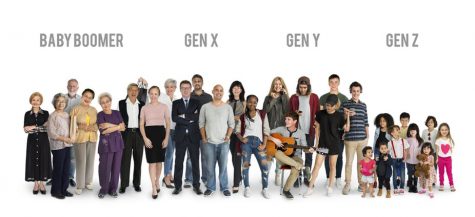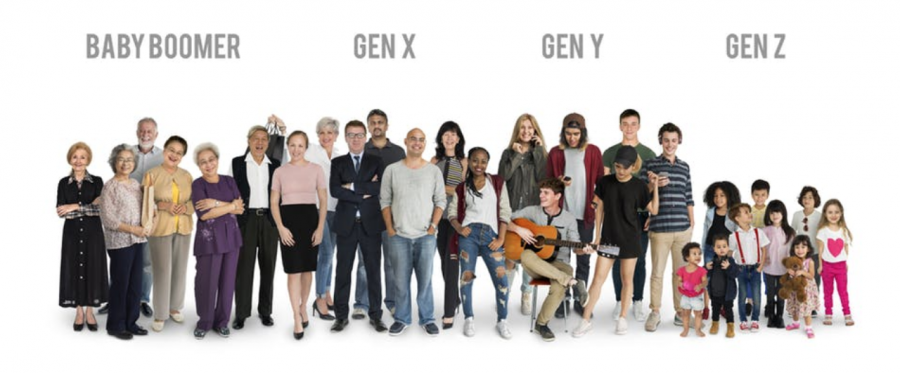Generations Defined

The phrase “Ok, Boomer” has recently exploded in internet and meme culture, after a viral TikTok of a man proclaiming that “the Millennials and Gen Z have the Peter Pan Syndrome; they don’t ever want to grow up.”
This simple, yet profounding retaliation contrasts a Baby Boomer’s ideals and a Gen Z’s ideals, which begs a greater question: to what extent are each of these generations similar and different from each other?
As of today, there are four headlining generations: Boomers, Generation X, Millennials (or Gen Y) , and Generation Z. Because of Gen X’s lack of a cultural identifier, sociologists (maybe even Billy Idol) coined the title, and from there, future generations names would go down the alphabet.
Generation names are important, because they define 20 years of history, politics, and culture. Companies who are trying to market use these generational names to figure out who they’re selling to, and what the consumer wants. No matter the letter however, it’s important to understand who is being talked about.
One of the oldest generations today are what’s called “Baby Boomers,” referring to a post-war population increase. Baby Boomers lived during a time where the economy was at its peak, and therefore, can enjoy retirement benefits. These individuals were born between 1946 to 1964.
The following generation is what’s called “Generation X”, or “Gen X” for short. This generation grew up in a time of societal changes and values. Earlier on, they were characterized as “slackers”, but have shown to be happy, active, and achieving a work-life balance, according to researchers from Adweek. Gen Xers were born between 1965 to 1980.
Following Gen X are what’s called “Millenials” (or Gen Y, however, the term “Millennials” is what’s largely accepted). Millennials were born between 1981 to 1996. Millenials are used to technology, because their “coming of age” is defined when the “Information Age” occurred.
The generation that is currently dominating pop culture is “Generation Z”, or “Gen Z’ for short. Also nicknamed the “Gen Tech”, these individuals were born from 1997 onwards; the ending year is yet to be confirmed. Gen Z has been dubbed by The Economist as the more “well-behaved, stressed, and depressed” generation.
Since the last three generations have exhausted the alphabet, most people agree that the next generation will be named “Gen Alpha.” While Gen Alpha are still in their childhood, they’re expected to bring something new to the table, much like how each previous generation brought new, innovative ideas to society.

Olivia (Liv) Frey is the Editor-in-Chief and Opinion Editor of North Star News. Ever since joining NSN her freshman year, she has grown a deeper love...







